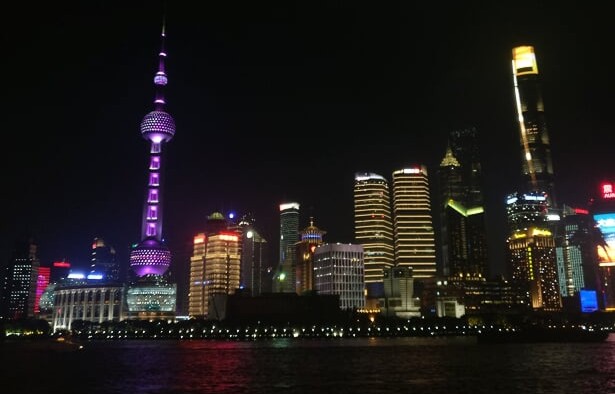Transferring current research findings concerning the economic development of China to the Geography classroom

| Led by: | Prof. Dr. Ingo Liefner, Dr. Janis Fögele (JLU Gießen), Prof. Dr. Rainer Mehren (JLU Gießen) |
| Team: | Sebastian Losacker |
| Year: | 2020 |
| Funding: | DFG |
| Duration: | 2019 - 2020 |
| Is Finished: | yes |
The project is financed as a so-called knowledge transfer project, which follows the premise of transferring the findings of already funded DFG projects into practice (here into school). The project objectives concern two levels, research and development. Firstly, the project aims to integrate research insights of DFG-projects carried out by economic geography to geography classrooms in Hessen, as a start. Within the frame of symbiotic teacher workshops, teachers, representatives of the educational administration, and applicants from economic geography and geographical subject-matter education as well as Chinese scientists develop professionally qualified and methodically innovative educational arrangements concerning different aspects of China’s economic situation. These foundations for teaching and learning are evaluated and disseminated. In order to increase the capacities to implement the lesson components, the development of teaching material within this study is combined with a multiplicator system and the transformation of professional beliefs of participating teachers. This is related to the striven for insights of the following second level of objectives. Accordingly, within the empirical research and in the sense of implicit orientations, the teachers’ habitual orientations are focused upon. Following the concept of habitus and by employing reconstructive approaches, the aim is to consolidate the existing orientations, based on the topical context dealt with here, within a typology of geography teacher types. With the aid of the typology, it is possible to make statements concerning typical orientations of teachers and their subsequent approaches to realising similar subjects within their lessons. Based on this, the manner of transformation of the participating teachers’ orientations within the frame of a workshop lasting several months are reconstructed. It is examined longitudinally how the teachers‘ orientations regarding complexity as an integral aspect of geographic subject matter in general and within the context of Chinese economy in particular typically change in the course of time. Based on this, statements can be made regarding the associated consequences for a different adaptation of these subjects in the classroom and different strategies of planning and conducting of lessons. The insights concerning the transformation or, alternatively, the persistence of orientations that have been reconstructed by different types of teachers serve as a basis for adaptive measures and professionalisation. After all, dominant distances of knowledge and conceptions of an application-oriented perspective in school up to research perspectives in higher education with regard to the topical context of Chinese economy are highly relevant. Analysing these distances makes it possible to draw conclusions about requirements to a broad reception of the findings of scientific research at school.
Publications
- Liefner, I.; Losacker, S. (2022): Innovatives China. Entwicklung und Anwendung neuer Technologien im Bereich der Nachhaltigkeit. Praxis Geographie (4), 4-9.
- Losacker, S. (2021): ‘License to green’: Regional patent licensing networks and green technology diffusion in China. Technological Forecasting and Social Change, 121336. DOI: 10.1016/j.techfore.2021.121336
- Hansmeier, H.; Losacker, S. (2021): The combination of supply and demand-side eco-innovation policies for regional sustainability transitions. Regions eZine (9). DOI: 10.1080/13673882.2021.00001088
- Losacker, S. (2020): The geography of green technology licensing in China. Regional Studies, Regional Science, 7(1), 387-389. DOI: 10.1080/21681376.2020.1809507
- Losacker, S.; Liefner, I. (2020): Regional lead markets for environmental innovation. Environmental Innovation and Societal Transitions, 37, 120-139. DOI: 10.1016/j.eist.2020.08.003
- Losacker, S.; Liefner, I. (2020): Implications of China's innovation policy shift: Does “indigenous” mean closed?. Growth and Change. DOI: 10.1111/grow.12400
- Losacker, S. (2020): China and great power responsibility for climate change (Book Review). Eurasian Geography and Economics. DOI: 10.1080/15387216.2020.1768135
Presentations to Scientific Audiences
- Losacker, S.: Does geography matter for the speed of green technology adoption? Insights from Chinese patent licensing data. 12th International Sustainability Transitions Conference. Online, 07.10.21.
- Losacker, S.: Using patent licensing data to measure the diffusion of environmental innovations: Methodological considerations and exploratory data analysis (poster presentation). 12th International Sustainability Transitions Conference. Online, 07.10.21.
- Losacker, S.: Diffusion of environmental innovation in China: the geography of green technology licensing. AK Ostasien. Online, 25.06.2021.
- Losacker, S.: The speed of green technology diffusion in Chinese regions: how does geography matter? Regions in Recovery, RSA Global e-Festival. Online, 07.06.2021.
- Losacker, S.: Geography and the time-to-adoption of green technologies: Insights from Chinese patent licensing data. RSAI-GSSI Workshop on “Regions in-between the green transition and the digital transformation”. Online, 04.06.2021.
- Losacker, S.: Geography and the speed of green technology diffusion: Empirical insights from Chinese patent licensing data. 6th NEST Conference. Sofia (online) 09.04.2021.
- Losacker, S.: Regional Lead Markets for Environmental Innovation. 11th IST Conference, Vienna/online, 18.-21.08.2020.
- Losacker, S.: Regional Lead Markets for Environmental Innovation: What can we learn from Patent Licensing Data?. 5th NEST Conference, Zurich/online, 08.05.2020.
- Losacker, S.: Regional Lead Markets for Environmental Innovation. 5th Geography of Innovation Conference, Stavanger, 30.01.2020.
- Losacker, S.: Regional Lead Markets for Environmental Innovation. IIDEOS Colloquium, Hannover, 24.01.2020.
- Losacker, S.: Environmental Innovation and Regional Lead Markets. AK Industriegeographie, Naurod-Niedernhausen, 08.11.2019.
- Losacker, S.; Liefner, I.: Environmental Innovation and Regional Lead Markets. Research Workshop, School of Urban & Regional Science, East China Normal University. Shanghai, China, 17.09.2019.
- Losacker, S.: Innovation in China: Does ,indigenous’ mean closed? RSA Annual Conference. Santiago de Compostela, Spain, 06.06.2019.
- Losacker, S.: The Impact of Regional Innovation Systems on Indigenous Innovation in China – Conceptual Framework and Empirical Evidence. Merian Centre Bejing (Exploratory Workshop). Berlin, 17.11.2018.


